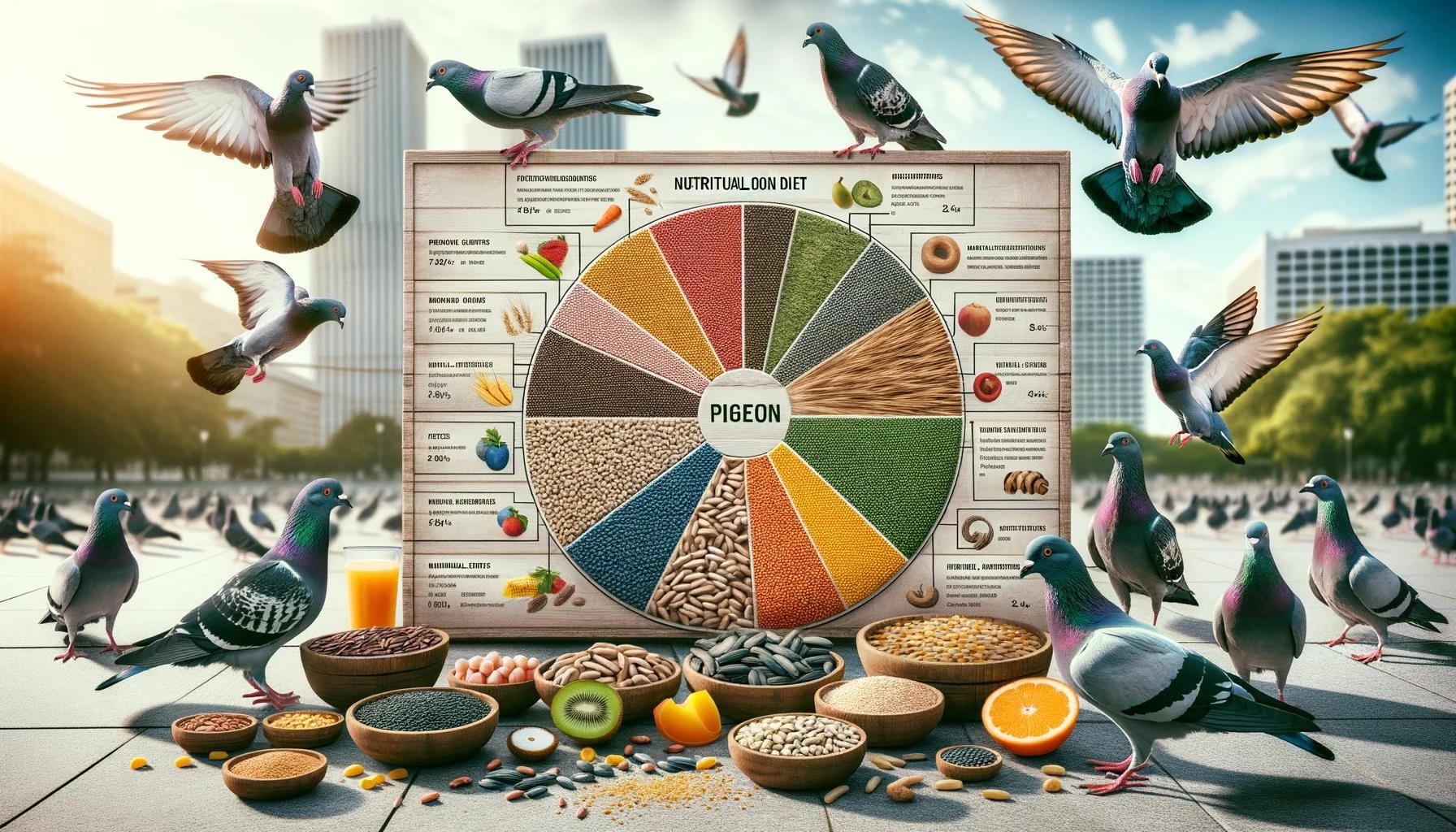Pigeon feeding is an important aspect of caring for these birds, whether they are kept as pets or used for racing and breeding. Providing the right nutrition is essential for their overall health and well-being. This article will explore the basics of pigeon feeding, including the types of food they need, feeding schedules, and other important considerations.
Key Takeaways
- Pigeons require a balanced diet that includes grains, seeds, greens, and occasional fruit.
- Grit is essential for digestion and should be provided to pigeons regularly.
- Feeding schedules should be consistent to establish a routine for the birds.
- Access to clean drinking water is crucial, and pigeons also enjoy bathing.
- Unsafe foods and feeding practices should be avoided to ensure the health of the pigeons.
Pigeon Nutrition
When it comes to the nutrition of pigeons, carbohydrates and fats are the primary fuel sources. Their natural diet includes grains, seeds, greens, fruits, nuts, and vegetables. Pigeons kept in captivity often have a controlled diet, consisting of a mixture of seeds, fruits, nuts, and vegetables.
A well-balanced pigeon diet typically consists of:
- Grains, such as corn, wheat, and barley
- Seeds, such as millet and sunflower seeds
- Leafy greens, such as spinach and lettuce
- Occasional fruits, such as apples or grapes
Grit is an essential part of a pigeon’s diet as it aids in digestion and provides essential minerals. Grit can be provided in the form of commercially available pigeon grit or crushed eggshells.
Feeding Schedule
Establishing a feeding schedule is important for pigeons as it helps regulate their food intake and establishes a routine for the birds. Pigeons should be fed at the same time each day, preferably in the morning and evening.
It’s important to monitor the feed intake and adjust the quantity depending on the pigeon’s activity level. Adult pigeons generally consume around 35-50 grams of food per day, so it’s important to calculate the amount of feed required over a specific period.
Water and Bathing
Pigeons always need access to clean drinking water. The water bowl should be at least 1 inch deep, allowing the pigeons to dip their whole beak in it to drink. It’s important to change the water daily and keep the container clean.
Pigeons also enjoy bathing, so providing them with a bath container a few times a week is beneficial. The container should be at least a foot in diameter to accommodate one pigeon, with a couple of inches of water. Bathing helps keep their feathers clean and is an important part of their grooming routine.
Unsafe Foods and Feeding Practices
There are certain foods that are detrimental to pigeons’ health and should be avoided. These include chocolate, caffeine, alcohol, and anything salty or sugary. Additionally, avoid feeding pigeons bread as it lacks nutritional value and can cause health issues when consumed in excess.
Feeding pigeons in overcrowded areas or allowing them to become reliant on human feeding can lead to health problems and the spread of diseases. It’s best to let pigeons forage for natural foods whenever possible.
Conclusion
Pigeon feeding is an important aspect of caring for these birds. Providing them with a balanced diet that includes grains, seeds, greens, and occasional fruit is crucial for their well-being. Establishing a feeding schedule and providing access to clean drinking water and bathing opportunities are also important considerations. By following these basic guidelines, you can ensure that your pigeons remain healthy and happy.









